The All India Digital Cable Federation (AIDCF), an industry body representing the interest of MSOs, has suggested foreign technology transfer and a slew of government financial incentives, amongst other measures, to boost local manufacturing in the broadcasting and cable television sector.
It has also backed regulator Telecom Regulatory Authority of India (TRAI)’s observations that a reality check should be first done before promoting efforts for local and indigenous manufacturing in the broadcasting and cable TV sector by assessing and ascertaining the quantum of demand and requirement of equipment associated with the segment, irrespective of the same being locally manufactured or imported.
“Bulk of deployment in the television broadcast sector is being met through imports, and, presently, the technological and business ecosystem does not stand supportive of domestic manufacturing of such equipment,” AIDCF said in its submission to TRAI’s consultation paper on ‘Promoting Local Manufacturing in the Television Broadcasting Sector’.
In its background paper on the subject TRAI, citing the 25th Report of Standing Committee on Information Technology (2020-2021), had observed that amongst major broadcast equipment not manufactured in India included the SW Transmitters, FM transmitters, diplexer, measuring equipment, programme production software, digital transmitters, camcorder, non-linear editing, production and routing switchers, dynamic frequency selection, high power amplifier, integrated receiver/decoder and modulators.
But AIDCF has also pointed out that blindly going in for local manufacturing in all the segments of the hardware is not advisable, and it has cited the example of headends.
Pointing out that most of the demand associated with headend equipment is catered through imports, which saw peak demand during the implementation of digitalisation in 2012-17 when most MSOs installed equipment that were imported from American, European and Chinese manufacturers, the MSO body has said after the completion of digitalisation in 2017, the demand for headend equipment has tapered off.
“…encouraging indigenous manufacturing for headend and associated equipment with headend, at this stage, will require investment and resources of huge magnitude, which is not likely to give lucrative and commercially gainful returns on account of low and limited instances of demand,” AIDCF has said, backing its assertions.
However, the industry body has suggested the following measures that could be taken to facilitate domestic and indigenous manufacturing of transmission and consumer premises equipment (CPE):
# The government may provide land at subsidised rates to the local manufacturers or may grant a land subsidy to such manufacturers. The extent of such subsidies and areas can be determined by the government by taking into consideration the nature of equipment for which a plant is sought to be set up.
# The government may introduce a one-time 100 percent reimbursement of stamp duty and registration charges paid with respect to lease/purchase of land, industrial plots or tenements.
# The government may introduce a one-time 100 percent reimbursement of land conversion fee payment that may be applicable in case of land conversion fee payment made for converting land from agricultural use to industrial use.
# The government may also introduce a separate subsidy for plant and machinery by virtue of which the manufacturers who prepare the finished product by assembling various components and parts, can avail such subsidies that will act as an incentive for them to engage in local manufacturing of finished equipment.
# The government may also introduce special funding schemes with low interest rates as well as tax benefits for the manufacturers who intend to engage in local manufacturing of several components associated with any equipment or finished products.
# The government may also introduce additional incentives in the form of tax holidays and/or reduced taxes on domestically manufactured transmission equipment and/or CPE like STBs, OLTs and ONU. The government could introduce higher import duties on finished CPE that are imported. This will encourage the buyers to purchase from Indian manufacturers who procure and locally assemble the finished products.
# The government may consider collaboration with foreign manufacturers for promoting technology transfers as the same will enable and equip the local manufacturers to indulge in the domestic production of both the equipment (finished product) as well as the components of the equipment.
# The government may also grant electricity at subsidised rates for a period of at least five years from the date of commencement of commercial production.
# The government may subsequently, after a period of five years, introduce power tariff reimbursement by introducing subsidy on electricity/power consumed by the local manufacturers, while undertaking indigenous production and manufacturing of equipment.
The government may also incentivise the domestic manufacturers by providing a production linked incentive to the tune of 5-10 percent of net sales turnover for a period of five years from the date of commencement of commercial manufacturing and indigenous production.
On the lack of adequacy in local STBs, AIDCF observed the requirements in India are largely catered to by Korean and Chinese vendors, which offer STBs at very economical rates.
“This onslaught is formidably responsible for the inability of indigenous manufacturing as the growing demand for STBs gets ostensibly catered (to) by the foreign manufacturers. Another challenge that the STB manufacturing industry is thwarted with, is the dependence on foreign Conditional Access System (CAS). The foreign CAS companies already have pre-existing tie- ups with other stakeholders like system on chip (SoC) providers, STB manufacturers, system integrators, etc.
“Even if the domestic manufacturers attempt to enter into an understanding/agreement with global CAS companies, under most circumstances, they are not subjected to convenient/competitive terms or conditions. Therefore, lack of effective collaboration between the domestic manufacturers and global software companies act as a major impediment towards STB manufacturing in India,” AIDCF highlighted, adding only few companies in India are able to afford such kind of technological and business setup.
So, as a solution, the MSO’s body has suggested financial incentiuves and redesigning existing incentives to minimize transaction costs and maximize technology incubation and commercialization.
Is development of local CAS also a solution? Probably not. At least not in the way local CAS, famously dubbed i-CAS, was promoted earlier.
“While over 1.8 million STBs were integrated with i-CAS, the DPOs that deployed such STBs faced a lot of issues in terms of technical setbacks. Such STBs having i-CAS were neither amenable to the technical system requirements nor were statutorily compliant in terms of security standards and parameters,” AIDCF stressed, adding past experiences with i-CAS should be analysed properly.
“It is imperative that indigenous development of CAS should be proliferated in such a way that the same should not only be offered at a competitive and affordable price, but should also match the quality and standards of CAS that are being offered by foreign vendors. It is also suggested that the government may consider opting for technology transfer at subsidized rates instead of funding a new technology,” it suggested.
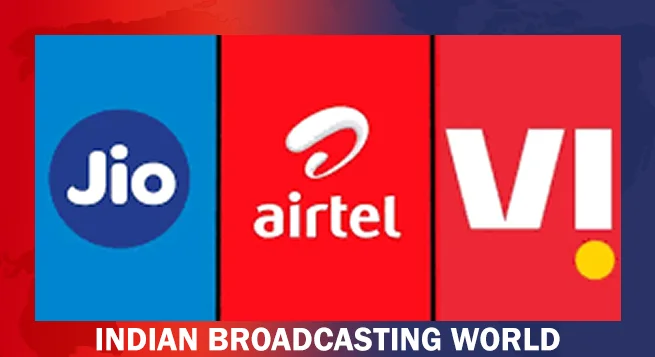 Jio, Airtel, Vi witness subs losses in Sept: TRAI data
Jio, Airtel, Vi witness subs losses in Sept: TRAI data 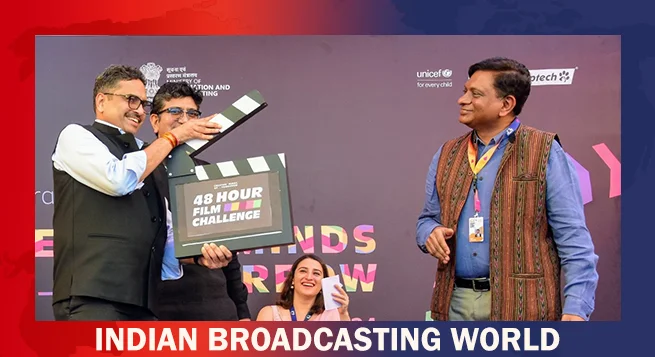 Expanded Creative Minds of Tomorrow edition inaugurated at IFFI
Expanded Creative Minds of Tomorrow edition inaugurated at IFFI  ZEEL’s Punit Goenka steps down as MD, retains role as CEO
ZEEL’s Punit Goenka steps down as MD, retains role as CEO 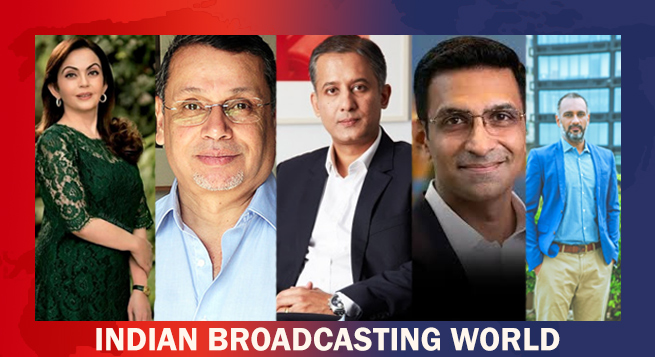 Kevin Vaz, Kiran Mani, Sanjog Gupta to head 3 verticals of JioStar
Kevin Vaz, Kiran Mani, Sanjog Gupta to head 3 verticals of JioStar 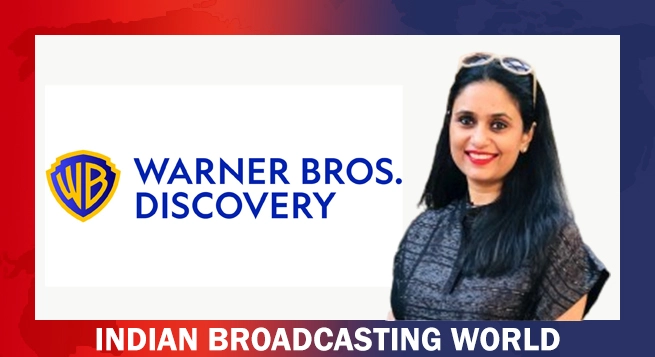 WBD elevates Deepa Sridhar to Senior Director – Corporate Communications, South Asia
WBD elevates Deepa Sridhar to Senior Director – Corporate Communications, South Asia 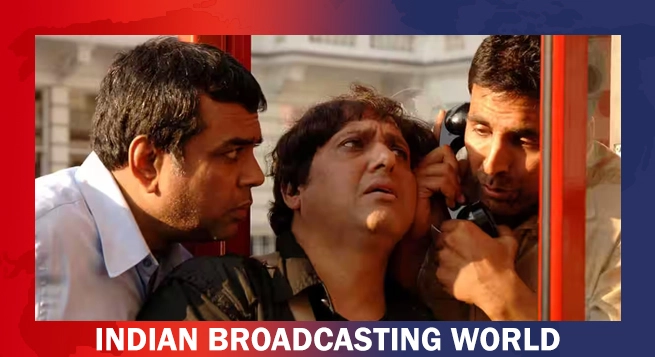 ‘Bhagam Bhag 2’ returns after 18 years
‘Bhagam Bhag 2’ returns after 18 years 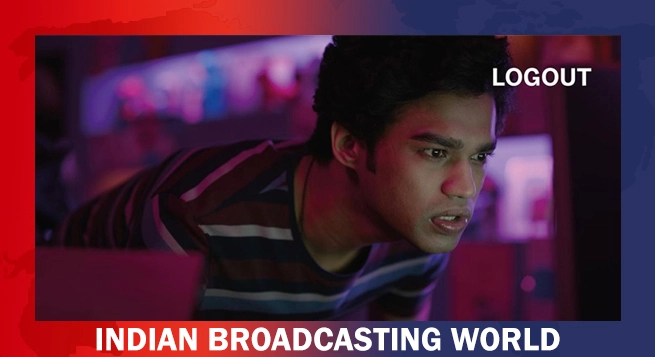 Babil Khan’s ‘Log Out’ to premiere at Argentina’s Mar del Plata International Film Festival
Babil Khan’s ‘Log Out’ to premiere at Argentina’s Mar del Plata International Film Festival  Tips Music presents ‘Love Garage’
Tips Music presents ‘Love Garage’  Fox, Hulu ink $1.5bn streaming content partnership
Fox, Hulu ink $1.5bn streaming content partnership 








